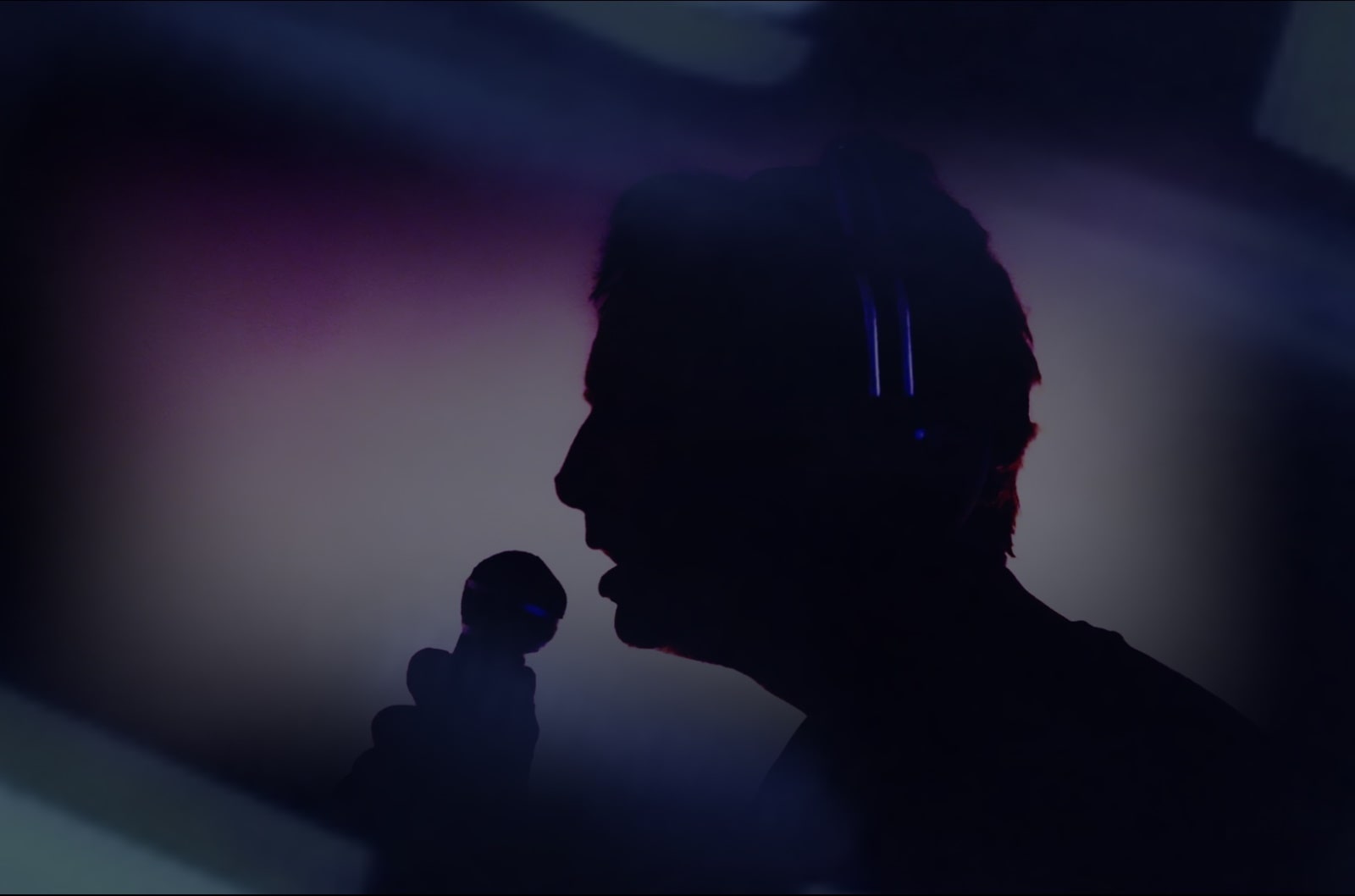Canada’s ALL ELSE FAILS is releasing its tenth studio recording this year, the aggressive and forlorn EP “The Incident at Black Lake”. Intended to be listened to as a single piece of music, it is dark, both musically and lyrically as vocalist/guitarist, Barrett Klesko wrote his parts in the darkest, most distressed headspace he has ever been in.
He says that during the writing of this album, he was convinced that he had been unglued from time, and was barely functioning. This personal torment boils over into the first track written for the EP “I, Defiler”.
Today, we’re stoked to give you an early listen of the EP, along with a special commentary and the band’s top 5 bands from Edmonton and Calgary worth a check! Scroll down to check out our list in full!
For fans of Chimaira, Killswitch Engage, Revocation, Soilwork, Fleshgod Apocalypse
Klesko explains further: “In the early days of my spiral, when confusion about my own state was at its highest. I was doing everything I could to understand the suffering I was experiencing. I tried using Acid in an attempt to explore my own mind. Informally guided trips allowed me to see aspects of myself that I hadn’t considered, and I was desperately searching for clarity I couldn’t find in the real world. Primarily this song is about those explorations of self, both the positives and the futility. Musically the song is erratic, kinetic, and industrial. It is heavy, both in guitars but in electronics and noise as well, and carries a time change into its bridge that furthers the disconnect between perception and reality.”
Compared to their other nine albums, “The Incident at Black Lake” is heavier than they have been in a while, which fans always love from them, but it’s also much stranger. There is a lot of chaotic energy in the recording, but they have placed every distorted chug, every strange gurgle, detuned synth, erratic glitch, or doom-inducing bass drop carefully.
The album “The Incident at Black Lake” is being released on September 30, 2022.
Details the band’s vocalist Barrett Klesko: “This album is fucking dark, musically and lyrically. I wrote my parts in the darkest, most distressed headspace I have ever been in.”
>> See the full track by track rundown below the top 5 list, after a further scroll:
Continues Barrett: “Most of the time during the writing of this album, I was convinced that I had been unglued from time, I was barely functioning. Through the fog and sensation of reality warping around me, I somehow found clarity in my writing.
Weirdly, at first, I didn’t know that I was writing about myself, I was just kind of writing. I remember there was a day when we got our first mix back, and I hadn’t heard the songs in a few weeks, 30 seconds into the first verse, I collapsed in this park I was walking in, I realized that the songs were me, describing the suffering I had been experiencing so that I could understand what was happening in my own head, it was completely overwhelming.
I had created something so direct, with zero awareness that I was doing so. It was a mind-bending experience, as if a past version of myself had reached out through time to help me understand what was happening to me, an absolute headfuck. For my contributions musically I created tones and sounds that conveyed how distorted the world around me felt, I was attempting to use the music to level out the turmoil I was experiencing internally.
I was experiencing reality in waves of vertigo, time-loss and visual blackouts, I was trying to push back on these sensations with music. I think this album is beautiful, there is elegance in darkness. I think it’s sad because I know the turmoil and pain it took to write it, and I think it’s powerful because it’s the first time I have truly been honest in my music.”

Photo Credit – Barrett Klesko – FadeBack Studios United
Asked about some noteworthy local bands recommendations, All Else Fails gave us the following 5 bands from Edmonton and Calgary, Canada:
Skepsis
The 21st Agenda
Eternal Prophecy
Sleepwraith
(led by past AEF bassist Seedy Mitchell)
Syryn
Track by Track, explained (LYRICALLY & MUSICALLY):
I, Defiler: The first song I wrote lyrically for the EP. In the early days of my spiral, when confusion about my own state was at its highest. I was doing everything I could to understand the suffering I was experiencing. I tried using Acid in an attempt to explore my own mind. Informally guided trips allowed me to see aspects of myself that I hadn’t considered, and I was desperately searching for clarity I couldn’t find in the real world.
Primarily this song is about those explorations of self, both the positives and the futility. The song opens with the line “We are the Watcher” which is the experience of standing outside my own body and judging myself as lacking. During one of these trips my mind disconnected from the flow of time for the first time, I describe it as being able to “slide the scale” into different times in my own life, often which had points anchored in trauma, but occasionally were sitting in places of peace and beauty.
The lyrics attempt to put to music these sensations, and the following experiences of both déjà vu and Jamais vu, sometimes simultaneously. Musically the song is erratic, kinetic, and industrial. It is heavy, both in guitars but in electronics and noise as well, and carries a time change into its bridge that furthers the disconnect between perception and reality.
Devour the Sun: This song is an allegory. A child from a beautiful nameless place travels across existence. It was born in warmth and life, from an engine of creation, and its only need is to share who it is with whatever it comes in contact with.
As it travels, it leaves a piece of its radiance behind as a gift, a tiny slice of its essence that it shares with exuberance. It travels for years, shining it’s light on whatever it encounters, however, over the long years, it eventually forgets who it is, and with that, where it came from. The child drifts, older now, and comfortable at first to be pulled along by the forces around it, buffeted across the ether, fulfilled by the simple act of experience. Over time, however, discontent begins to grow. Who was it? There must be a purpose beyond drifting endlessly in the black. Its questions turn to screams and cries in the heavens, but the black has no answers.
Eventually, devoid of solace, its voice becomes quiet and its mind despondent. It slowly diminishes, becoming a faded husk, lost inside its own ruminations, until one day it enters the atmosphere of a nameless biome. For the first time in years, it sees its own reflection. Cast back unto itself by the starry eyes of a young girl, undistorted by expectation, its fragmented and damaged memories return. It knows once again that long ago it was a star, a sun, burning bright in the deepest reaches of the universe. In this child’s eye, the light that was once a star becomes an experience; bright, beautiful, and warm, and then a memory; comforting and soft.
For a moment, the light knows peace in the surety of itself, but the child sleeps, the memory fades, and the light from the long-dead star is lost forever in nothingness. Musically this song follows an unconventional narrative. It ebbs and flows, thrash riffs turn to piano-esq clean parts. Soaring melodies devolve into full-bodied guttural torment before becoming aethereal whispers.
Flesh /Excess /Wealth: This song explores the horror of having the sense of my own humanity removed from my conscious existence. I live in a time where I am taught to ignore my strongest human instincts, to follow systems put in place to hurt me, and to ignore what I perceive with my senses. I put progress and individualism over kindness and community, I have forgotten that I am part of a greater universe to which humanity has barely opened our eyes to. I hurt myself in the name of our god; currency, I humiliate myself at the altar of ego. I place the needs of the unknown few above the wanting many and am often not aware of doing so. This song is about disconnection. Musically it is oppressive, militant, violent, and aggressive.
Crystal Mountain: This is a song we love, and felt that we could cover faithfully at its core, while adding our own twists to its soundscape, to justify its existence. Lyrically it speaks to religious oppression on a personal and community level.














